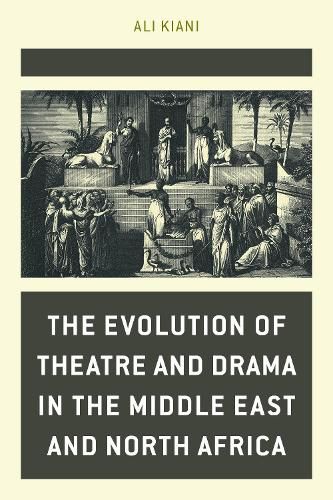Readings Newsletter
Become a Readings Member to make your shopping experience even easier.
Sign in or sign up for free!
You’re not far away from qualifying for FREE standard shipping within Australia
You’ve qualified for FREE standard shipping within Australia
The cart is loading…






Cultural expressions of the Middle East and North Africa (MENA) region have a rich tradition, communal narratives, and spiritual connectivity. This tapestry, distinct from the secular drama prevalent in Western cultures, is a unique blend of indigenous traditions and Western influences. This book introduces the rich and diverse theatrical practices developed and matured in the region from the nineteenth to twenty-first centuries.
The introduction of Western-style theatre in the nineteenth century marked a shift from traditional entertainment forms. In the twentieth century, subjects of colonialism, nationalism, independence, and Islamic ideology have often dominated the theatrical discourse, reflecting the region's socio-political realities. The book's final section looks at theatre from a twenty-first global perspective, including the crucial role of the diaspora. This book shows how colonialism, Islamic ideology, politics, war, refugee crisis, and nationalism have permeated MENA's theatre in the past and have continued to shape it in the present.
$9.00 standard shipping within Australia
FREE standard shipping within Australia for orders over $100.00
Express & International shipping calculated at checkout
Cultural expressions of the Middle East and North Africa (MENA) region have a rich tradition, communal narratives, and spiritual connectivity. This tapestry, distinct from the secular drama prevalent in Western cultures, is a unique blend of indigenous traditions and Western influences. This book introduces the rich and diverse theatrical practices developed and matured in the region from the nineteenth to twenty-first centuries.
The introduction of Western-style theatre in the nineteenth century marked a shift from traditional entertainment forms. In the twentieth century, subjects of colonialism, nationalism, independence, and Islamic ideology have often dominated the theatrical discourse, reflecting the region's socio-political realities. The book's final section looks at theatre from a twenty-first global perspective, including the crucial role of the diaspora. This book shows how colonialism, Islamic ideology, politics, war, refugee crisis, and nationalism have permeated MENA's theatre in the past and have continued to shape it in the present.